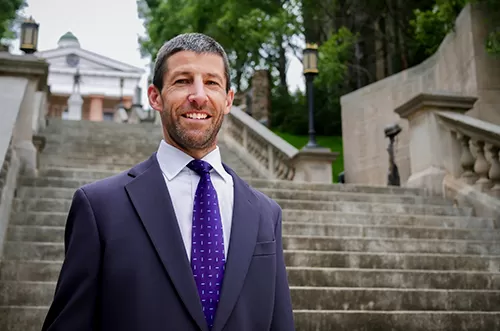Atl. Coast Pipeline, LLC v. 5.63 Acres, 2018 U.S. LEXIS 32526, 2018 WL 1097051 (E.D. Va. Feb. 28, 2018)
Atl. Coast Pipeline, LLC v. 6.71 Acres, 2018 U.S. Dist. LEXIS 86151 (W.D. Va. May 22, 2018)
Barr v. Atl. Coast Pipeline, LLC, 815 S.E.2d 783 (Va. July 5, 2018)
Sierra Club v. United States DOI, 722 Fed. Appx. 321 (4th Cir. May 15, 2018)
Sierra Club v. State Corp. Comm’n, 2018 Va. Unpub. LEXIS 18 (Va. Aug. 9, 2018)
Sierra Club v. United States Army Corps of Eng’rs, 2018 U.S. App. LEXIS 23802, 2018 WL 4039793 (4th Cir. Aug. 23, 2018)
Sierra Club v. United States DOI, 899 F.3d 260 (4th Cir. Aug. 6, 2018)
Case citations related to the following are listed above.
The Atlantic Coast Pipeline Project (the “Pipeline”) is a 600 mile long interstate pipeline that transmits natural gas from Harrison County, West Virginia to the eastern portions of Virginia and North Carolina. Atlantic Coast Pipeline, LLC (“ACP”) proposed to construct, operate, and maintain the Pipeline. In order to proceed, ACP requires a 125-foot-wide right-of-way for most of the Pipeline and will disturb 11,776 acres of land. After construction, ACP would retain a permanent 50-foot-wide right-of-way to operate the Pipeline.
Under the Natural Gas Act (“NGA”), Congress delegates its eminent domain power to the Federal Energy Regulatory Commission (“FERC”). Any party seeking to build, operate, and maintain a natural gas pipeline must obtain a certificate of public convenience and necessity (a “Certificate”) from the FERC. The FERC’s issuance of a Certificate conveys and automatically transfers the power of eminent domain to the Certificate holder (i.e. a private natural gas company). With the transferred power of eminent domain, a Certificate holder can then initiate condemnation proceedings in the appropriate federal district court or state court. To challenge the FERC’s issuance of a Certificate, an aggrieved party must file a petition for a rehearing with the FERC. The FERC may delay its decision on the petition by issuing a tolling order. If the FERC either declines to rehear the matter or issues a final order upon the petition for a rehearing, the aggrieved party must then petition for review in the United States Court of Appeals for the circuit in which the natural gas pipeline is or will be located, which has exclusive jurisdiction to affirm, modify, or set aside the final order in whole or part. As such, an aggrieved party may not challenge the FERC’s issuance of a Certificate in federal district court or state court even though the Certificate holder’s condemnation proceedings are pending before a federal district court or state court.
Pursuant to the National Environmental Policy Act (“NEPA”), when the FERC receives a Certificate application, it must act as lead agency in preparing an Environmental Impact Statement (“EIS”), which describes the likely environmental effects, adverse environmental effects which cannot be avoided, and potential alternatives to the proposal. ACP also had to obtain: (i) approval from the U.S. Army Corps of Engineers (the “Army Corps”) under Section 404 of the Clean Water Act (“CWA”); (ii) an Incidental Take Statement (“ITS”) from the U.S. Fish and Wildlife Service (“FWS”) to take several endangered species; and (iii) right of way permits from the U.S. National Park Service (“NPS”) authorizing the Pipeline to cross the Blue Ridge Parkway.
Beginning in 2015, ACP sought permission from landowners to enter properties to conduct preliminary surveys and other activities. In interpreting Va. Code § 56-49.01(A), the Supreme Court of Virginia held that the statute must be read in the disjunctive, which meant that ACP could enter the properties for the purpose of conducting activities necessary for determining the most advantageous route for the Pipeline.
On Friday, October 13, 2017, the FERC issued a Certificate to ACP. On October 16, 2017, FWS issued its ITS, which authorized the Pipeline to take several endangered and threatened species. On December 12, 2017, NPS issued a right-of-way permit authorizing the Pipeline to cross the Blue Ridge Parkway. On February 7, 2018, the Army Corps verified that ACP could use Nationwide Permit 12 to construct the Pipeline. The Army Corps, however, later suspended its verification. In December of 2017 and February of 2018, ACP filed condemnation cases for easements along the FERC approved path for the Pipeline (the “Easements”). On ACP’s request, the district court expedited the hearings and heard oral arguments on February 26-27, 2018. In the its February 28, 2018 opinion, the district court dismissed the landowners’ challenges to the Pipeline and conditionally granted ACP immediate possession of the Easements, but required ACP to produce sufficient security to pay the fair market value of the condemned properties.
In addition to the condemnation cases, lawsuits were filed in the Fourth Circuit Court of Appeals against the ACP, FWS, NPS, and Army Corps, alleging various improprieties in the authorizations and approvals. For the time being, the Fourth Circuit Court of Appeals has stopped ACP’s construction of the Pipeline, by ruling as follows:
• FWS’ ITS is vacated because FWS’ use of terms such as “small percent,” “majority” or “all” of a species within a geographic area was not an enforceable take limit, FWS failed to explain why a numeric limit was not practical, FWS failed to create proper habitat surrogates, and FWS failed to create enforceable take limits for each of the species at issue;
• NPS’s statutory determination was not entitled to Chevron or Skidmore deference because the permit lacked precedential value, NPS’ determination did not set forth a general rule that would control future cases, and NPS did not address opposing views or present any sort of deliberative process; and
• FWS failed to comply with and (iii) NPS’ right of way permits violated statutory requirements under 460a-3 of the Blue Ridge Parkway Organic Act because the right of way permits were not accompanied by a valid agency determination that the Pipeline is not inconsistent with the purpose of the National Park System or the Blue Ridge Parkway.




